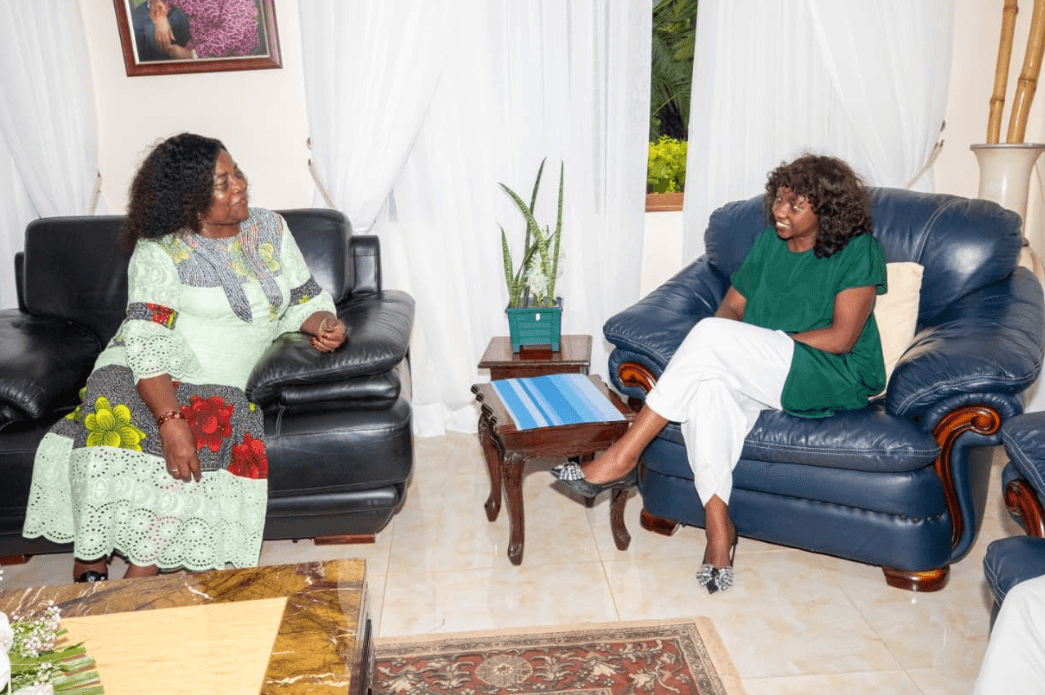Kiharu MP Ndindi Nyoro has said the labour-based model his NG-CDF office uses to implement projects reduces the cost by about 40 per cent.
The model has enabled the constituency to tile and renovate all 112 public primary schools, boosting hygiene while providing a conducive learning environment for pupils.
Unlike the usual tendering model, the labour-based model does away with contractors and locals are used to provide construction materials and labour.
All classrooms have undergone interior and exterior plastering, painting and tiling, as new classrooms are built for schools without sufficient learning areas.
The MP started using the model soon after he was elected for his first term in 2018 and approached manufacturing companies to train local masons on how to professionally install tiles and do paint works. They are now the ones who are engaged in projects.
Following the success of his classrooms tiling, the MP earlier in the year announced he would now embark on installing cabros in public primary schools to transform them into ‘academies’.
Early last month, the MP launched Masomo Bora programme that waived schools fees for public secondary school students to Sh1,000 per term.
“This programme is aimed at ensuring the students continue with their studies without disruptions. It will cover about 14,000 learners and will pay Sh5,000 for students learning in schools that charge Sh10,500 annually,” he said.
The programme will also facilitate a feeding that will see all day school learners enjoy tea or porridge and lunch for six days including Saturdays in partnership with Food For Education organization that feeds millions of hungry learners globally.
Ndindi said this while addressing nine MPs who had visited his constituency for a benchmarking forum said using the labor based model of implementing projects spares the extra money for more projects.
He also lauded President William Ruto for writing to parliament with the intent of ensuring the NGCDF fund is protected by being entrenched in the constitution.
“This is one of the funds that are very visible in regards to development. Although governors are our friends, it’s important to note that the amount of money given to them amounts to Sh385 billion while NGCDF funds amount to Sh40 billion and you can hardly go anywhere and miss NGCDF projects”.
The fund, he said, has contributed greatly to the implementation of Junior Secondary Schools by helping to construct classrooms and highlighted its support to needy students through bursaries.
Kipipiri MP Wanjiku Muhia brought her constituency’s team to learn the practicality of both Masomo Bora programme and the labour model of implementing projects.
“I have learnt that this model emphasizes transparency and gives people value for money. I hope to implement it in my area,” she said.
Aldai MP Maryanne Kitany said some parts of her constituency still have mud-walled classrooms and that reducing the cost of projects will help improve them.
“This is a perfect example of bottom-up, that local youths don’t have to travel to Nairobi to seek jobs. They can earn a living through NGCDF projects. This would boost local economies”.
Mogotio MP Reuben Kiborek said under the mentorship of Ndindi, they will pick what has worked from his programmes and implement it in their areas.
“No one has a monopoly of ideas. Even developed countries had to benchmark to get to their levels”.
This is the third batch of MPs to benchmark in the constituency.











